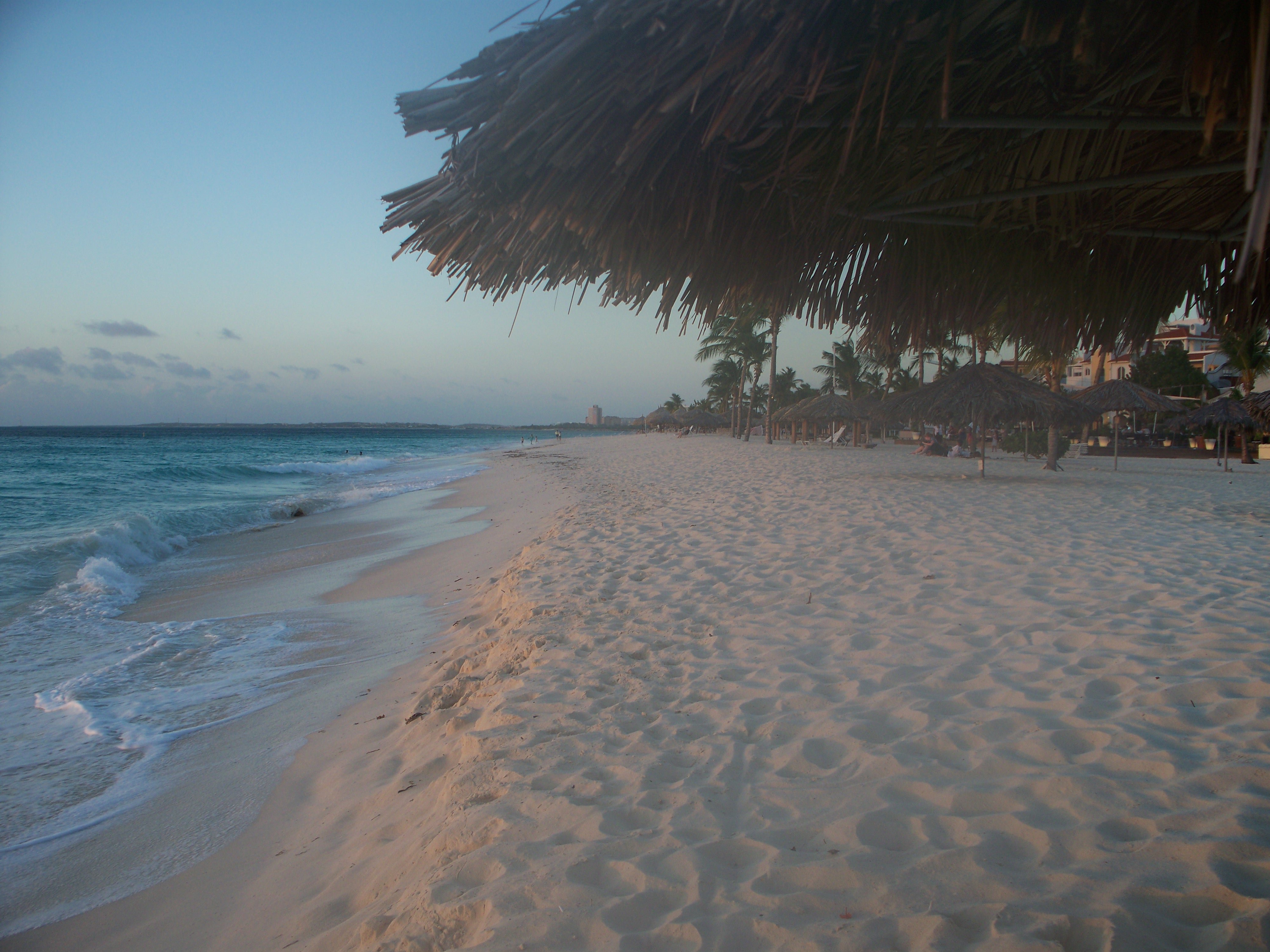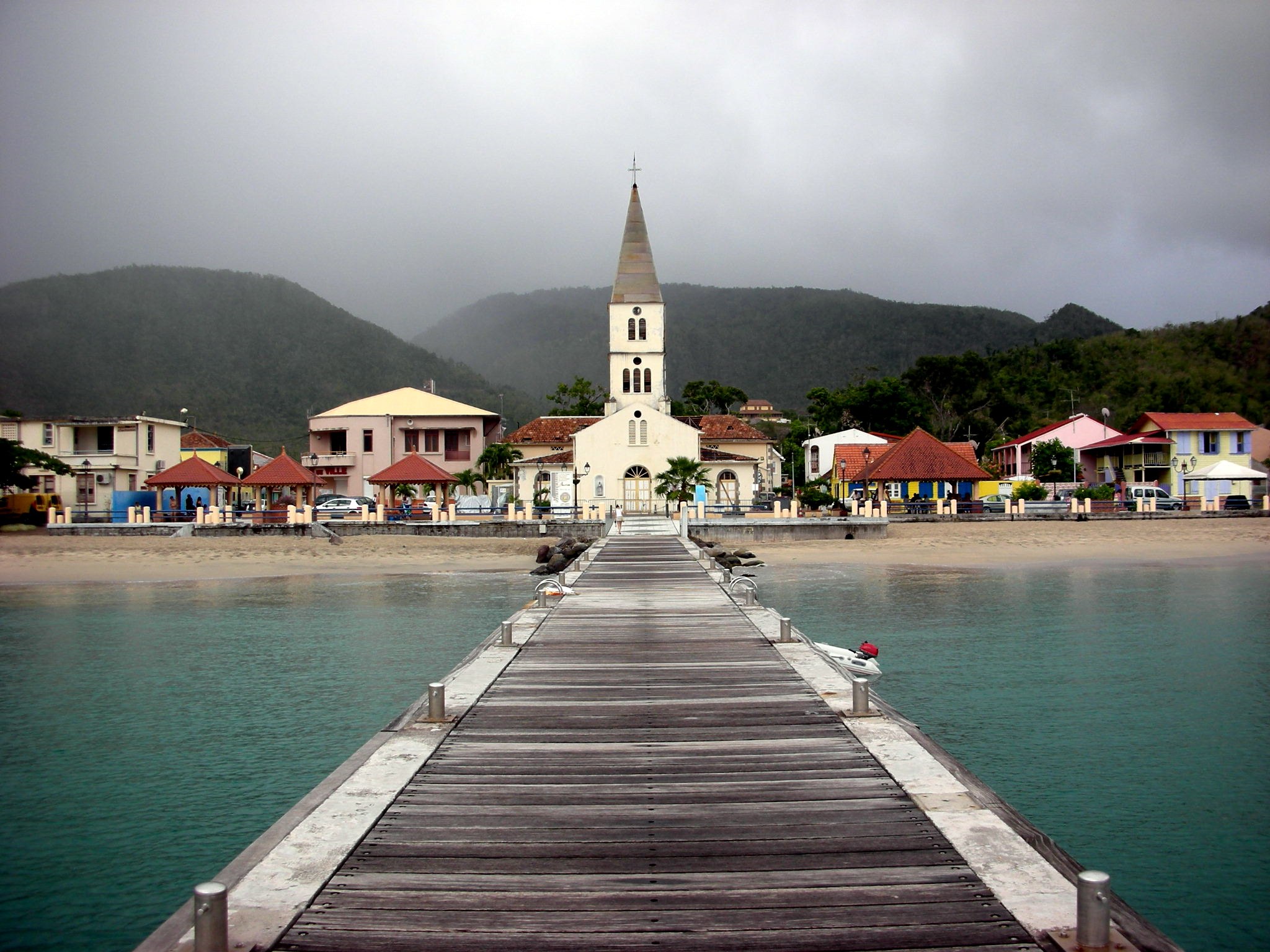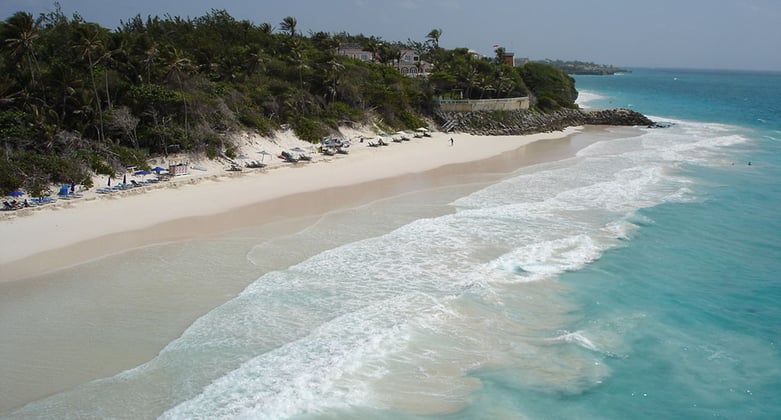Although many North Americans study at Caribbean medical schools, we do not normally think of the Caribbean as a region with outstanding health care. However, one might be surprised at just how good the medical systems are in some nations in the region.
In our latest installment of Health Care Around the World, the UMHS Endeavour looks at the nationalized medical systems of three Caribbean nations: Aruba, Barbados and Martinique. This is part of our ongoing series featuring nationalized medical systems throughout the world.
 Eagle Beach, Aruba. Photo: Set1536/Wikimedia Commons
Eagle Beach, Aruba. Photo: Set1536/Wikimedia Commons
Aruba Health Care
Aruba has one of best health care systems in the Caribbean. The island nation is a parliamentary democracy and an independent region of the Kingdom of the Netherlands (it seceded from the Netherlands Antilles in 1986 but still has the Dutch monarch, King Willem-Alexander, as its Head of State).
According to the Visit Aruba government website, “The quality of health care is of a high level and is available to everyone.”
Public health care covers both physical and mental health services that are “curative as well as preventive.”
Departments include the Department of Infectious Diseases, Youth Health Care, Youth Dental Care, Medicines Inspection, Pharmaceutical Affairs, Labor Health Service, Ambulance Service, a Medical Center in San Nicolas for Emergency and outpatient care, Social Psychiatric Service, Information and Education, Epidemiological Service.
Aruba also has a Public Health Laboratory, “providing services to the public health, which are necessary for the enforcement of public health legislation, and to a much greater extent, to provide clinical laboratory diagnostic services at the request of physicians and specialists in the general community, and the hospital.”
The Public Health Laboratory has the latest diagnostic analytical instruments and has “a well-trained staff amongst which professionally educated bio-analysts and laboratory specialists” The lab is enrolled in quality control survey programs of the U.S. Centers for Disease Control and Prevention (CDC), the College of American Pathologists, and Caribbean Epidemiological Center (CAREC). Quality is also maintained by L.W.B.I in the Netherlands.
Barbados Health Care
Barbados is another Caribbean nation with a noteworthy health care system. The website Business Barbados says it is “ranked among the best in the Caribbean.”
Specialized clinical and rehabilitative services are limited, but “core services” are good.
“Given the fact that our society is highly westernized in its acculturation, the chronic non-communicable diseases are the major causes of ill-health in the adult population, similar to patterns evident in North America and Europe,” Business Barbados says.
Business Barbados says highlights of health care in the Barbados system include:
- A good cardiac surgical program in place for well over a decade at the principal tertiary institution, the Queen Elizabeth Hospital (QEH).
- Access to acute care has significantly expanded, particularly in the private sector, with care provided by highly trained emergency physicians at the FMH Emergency Clinic in Bridgetown and the Sandy Crest Clinic, Holetown, St. James.
- Increased provision of private laboratory and radiological services in recent years.
- Healthcare is available to all Barbadians either publicly through a network of polyclinics around the island, which provide primary and some secondary care, while the QEH provides tertiary care.
- The island nation’s high-quality, low-cost care has made Barbados a popular spot for medical tourism.
 Les Anses d'Arlet, Martinique. Photo: Pascalou petit/Wikimedia Commons
Les Anses d'Arlet, Martinique. Photo: Pascalou petit/Wikimedia Commons
Martinique Health Care
Martinique’s health care is “magnifique,” some say. Martinique is a French Overseas Territory and, as such, is part of the European Union and its currency is the euro.
The website Allo Expat Martinique has detailed information about the island’s health care system. Martinique residents enjoy the same health care rights as people living in France, thanks to a 1992 law providing “that all persons all persons residing in France and in French Departments have the right to financial assistance for medical treatment costs in case of need,” Allo Expat says.
The Department (Martinique Government) pays for access to medical attention for the poor. Martinique pays “either the entire cost or the ‘ticket moderateur,’ which is a portion ranging from 0% to 65% depending on the nature of the illness, the care provided, or the type of medication. The costs of care to the homeless are paid by the State,” Allo Expat Martinique says.
Below are highlights of Martinique’s medical system from Allo Expat Martinique.
- Health insurance is provided by the social security system, a State-sponsored mechanism financed with compulsory contributions from salaries.
- The patient pays the total cost of treatment directly to the health provider and is later reimbursed by a health insurance agency. Reimbursement amounts are negotiated by healthcare providers and the social security system.
- A growing proportion of the population voluntarily takes out additional insurance to finance non-reimbursable portions.
- A system of direct payment by insurers relieves the patient from having to advance the cost, particularly for hospital and drug costs. In these cases, the health insurance system pays directly to the healthcare provider and the patient contributes the "ticket moderateur".
- The State has responsibility for general public health, including community-wide disease prevention, sanitation surveillance, border health control, and the control of major diseases and drug and alcohol addiction.
- The State oversees training of health personnel, helps define their conditions of work, monitors observance of quality-control regulations and health safety in treatment centers, and regulates pharmaceutical products. Moreover, it supervises the adequacy of treatment and preventive arrangements and regulates the volume of treatment provided. The central Government oversees the functioning of public hospitals, appoints their directors, establishes their budgets, and organizes their staff recruitment.
- The State supervises social welfare, its financing, the rules for population coverage, and financial responsibility for treatment. A prefect manages the State decentralized services corresponding to each of the Ministries involved, particularly those relating to health issues.
- At the local level, other prefects manage a Health and Social Affairs Office and the Interregional Social Security Office, common to the three departments and with a central seat in Martinique.
(Top photo) A beach in Barbados. Photo: Patdoy/Wikimedia Commons
About UMHS:
Built in the tradition of the best US universities, the University of Medicine and Health Sciencesfocuses on individual student attention, maintaining small class sizes and recruiting high-quality faculty. We call this unique approach, “personalized medical education,” and it’s what has led to our unprecedented 96% student retention rate, and outstanding residency placements across the US and Canada. UMHS is challenging everything you thought you knew about Caribbean medical schools.

Scott is Director of Digital Content & Alumni Communications Liaison at UMHS and editor of the UMHS Endeavour blog. When he's not writing about UMHS students, faculty, events, public health, alumni and UMHS research, he writes and edits Broadway theater reviews for a website he publishes in New York City, StageZine.com.
















